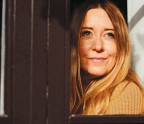eat dirt.

Cleanliness may be next to godliness, but what if straight-up filthiness is the true path to a healthy kid?
In the documentary Babies, there’s a scene in which the lives of two very different babies are set side by side. In one shot, a baby from San Francisco lies on an immaculate carpet while her father vacuums around her. In the next, the child of a tribe of Namibian goat herders sits in the dirt, puts a filth-covered shard of animal bone in his mouth and gives it a real going-over. He then proceeds to find a stagnant pool of water and put his face straight into it, drinking greedily. Later, he and a stray dog touch tongues. Through it all his mother watches, seemingly unconcerned.
If reading that has made you squirm in your chair, you’re not alone. Having a baby can often feel like a Sisyphean struggle against the dirt, mud and assorted filth of the world. But if it feels like your child has a sixth sense for hunting and eating muck, then it’s because, well, it does. Millions of years of evolution have left certain behaviours hard-coded in our collective DNA, and one of those behaviours, at least when it comes to babies, is to put whatever we can find into our mouths. We tend to think of this as something to be corrected, or prevented, but an increasing body of evidence is beginning to show us that babies may be eating dirt as a way of programming their microbiomesthe individual bacterial colonies that scientists are now realising could be linked to everything from allergies and asthma through to autism, depression, diabetes, obesity, multiple sclerosis and a whole host of autoimmune diseases.
“What you need to understand is that, in terms of their microbiomes, children are still developing, they’re still malleable,” says Jack Gilbert, a professor of microbial ecology at the University of Chicago and author of Dirt Is Good: The Advantage of Germs for Your Child’s Developing Immune System. “What I’ve come to realise through my studies is that exposing my kids to more bacterial burden could actually be extremely beneficial in helping them to live healthier, more productive lives.”
It’s hard to overstate how much of what you consider you is actually bacteria. More than 99 per cent of the genetic material in an average human is bacterial. While estimates vary, it’s thought that there are significantly more bacterial cells in our body than human cells, and they may even outnumber us three-to-one. Yet up until quite recently, we had made little effort to investigate how this vast panoply of microbes might actually be instrumental in keeping the delicate machines of our bodies operating as they should.
Millions of years of evolution have left certain behaviors hard-coded in our collective DNA, and one of those behaviours at least when it comes to babies is to put whatever we can find into our mouths.

Food is covered in bacteria the moment it hits
You’re reading a preview, subscribe to read more.
Start your free 30 days





